It’s a basic truth of the world, and yet one that many stories - and games - overlook: everybody thinks they’re in the right. The mustache-twirling villain is a product of Hollywood. The dark lord of all things evil is a product of religion. Both stereotypes grow from humankind’s desire for a simple good vs. evil narrative. You’ve probably heard the saying, “one man’s terrorist is another man’s freedom fighter,” and it’s true. The real world doesn’t see people doing evil deeds just for the sake of being evil. Borderlands 2 and, to an even greater extent, Borderlands: the Pre-Sequel don’t avoid the issue, though - quite the opposite. They take this idea and run with it.
Borderlands 2 introduces, rather immediately, the character of Handsome Jack as the main villain. The story begins with him trying to kill you, which becomes a running theme throughout the game. Nothing too unusual there. He yells at you through radio feeds, and mocks you as you are attacked. There's a notable exception here: all throughout the game he’s insists that he’s the hero, and you’re the bad guy. He's the man who dreams of wiping out every bandit and criminal on the world of Pandora, which - let’s be honest - is the vast majority of its population. He wants to bring peace, albiet in a very, very violent manner.
Not only does he have aspirations of mass murder on a global scale, but he abandons his own underlings to let them suffer from disease and bandit raids, makes no effort to provide for his workers, and also acts like a total jerk. If he’s calling himself the hero, then obviously he’s either lying or crazy, right?
Not entirely.
Humble Beginnings
Borderlands: the Pre-Sequel - which takes place before Borderlands 2 - also features Jack as one of the main characters, but this time he’s on your side. At this point he isn’t Handsome Jack, the mass-murdering CEO of the Hyperion Corporation. He’s just... Jack. And Jack really doesn’t seem like a bad guy. A bit douchey, sure, but by no means evil.
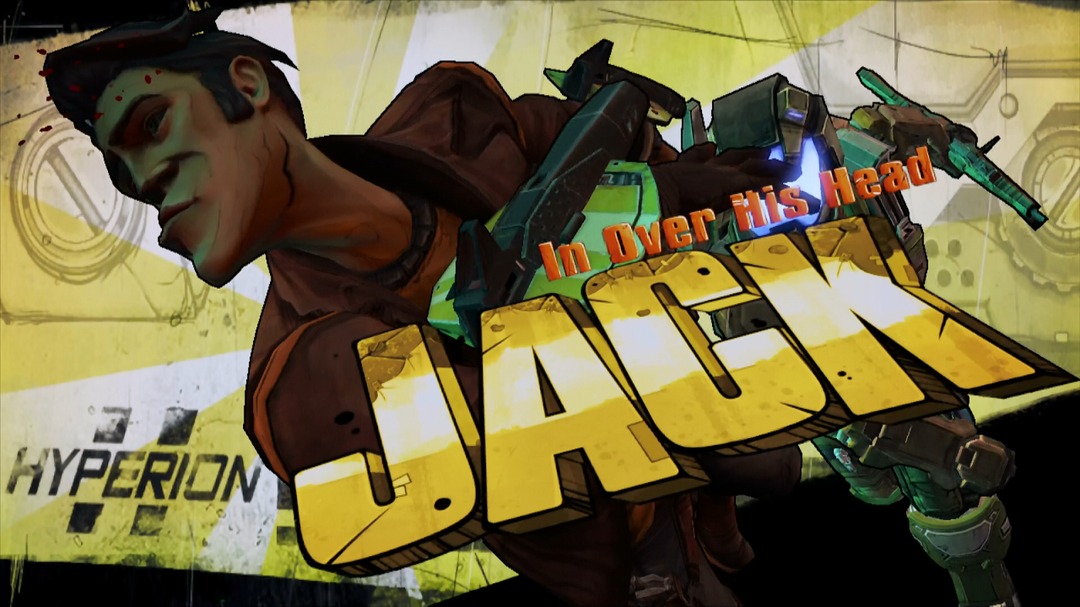
It should be noted - Spoilers abound for the Borderlands universe from this point on! You've been warned.
Jack’s exact position and title within Hyperion aren't entirely clear, but it seems like he has some sort of middle-management job. He’s in charge of Helios, a space station orbiting the world of Pandora and tasked with observing it. His workers are mostly simple-minded robots, but he’s also in charge of a number of CL4P-TP units with advanced (if annoying) AI and some human scientists as well. All of them, robots and humans alike, seem to like and respect their boss. Jack originally calls your character to help him search for the Vault. You reach Helios right as it comes under attack by Colonel Zarpedon and her army known as the Lost Legion. Their goal is to stop Jack from reaching the Vault by any means necessary, up to and including destroying Elpis (Pandora’s moon), thereby killing everyone on it.
The beginning of the Pre-Sequel sees Jack trying to defend his space station from the Lost Legion’s sudden attack. With the help of the Vault Hunters he hired, Jack fights his way to the security office, but soon finds that the entire station is being targeted with a jamming signal from Elpis, which stops its automatic systems from working. This leads directly to Jack’s act of true heroism, when he decides that he will remain behind and manually send the Vault Hunters to Elpis to stop the signal. There's a problem, people are going to die, and he is going to fix it, regardless of cost.
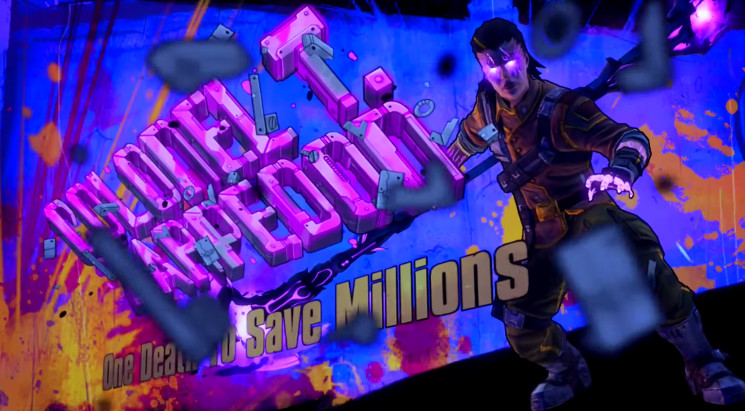
Of course, Zarpedon also thinks she's the hero, in a 'for the greater good' sort of way.
For most of the game, Jack seems like a good person and an effective leader. His first concern is taking back Helios, but he also tries to keep the people under him safe. More than one mission has you rescuing Hyperion workers from the Legion, and Jack frequently puts himself in the line of fire when he thinks that something needs his personal attention.
However, there are a handful of moments throughout the game that start to show Jack’s darker side. A few decisions that he makes highlight his Joker-like descent into the monster he is in Borderlands 2. Let’s examine them a bit more closely:
He Shot the Meriff (And Enjoyed It)
Huxter T. Meredith is the Meriff (that’s Mayor + Sheriff) of Concordia, Elpis’s biggest city. He’s a retired Hyperion employee and, as it turns out, the one behind the jamming signal. This is fairly early in the Pre-Sequel, and one of Jack’s least morally questionable choices. Even with Meredith’s betrayal, Jack was still planning to walk away after doing nothing but scaring him a bit. Jack doesn’t open fire until the Meriff pulls a pistol and tries to shoot him in the back.
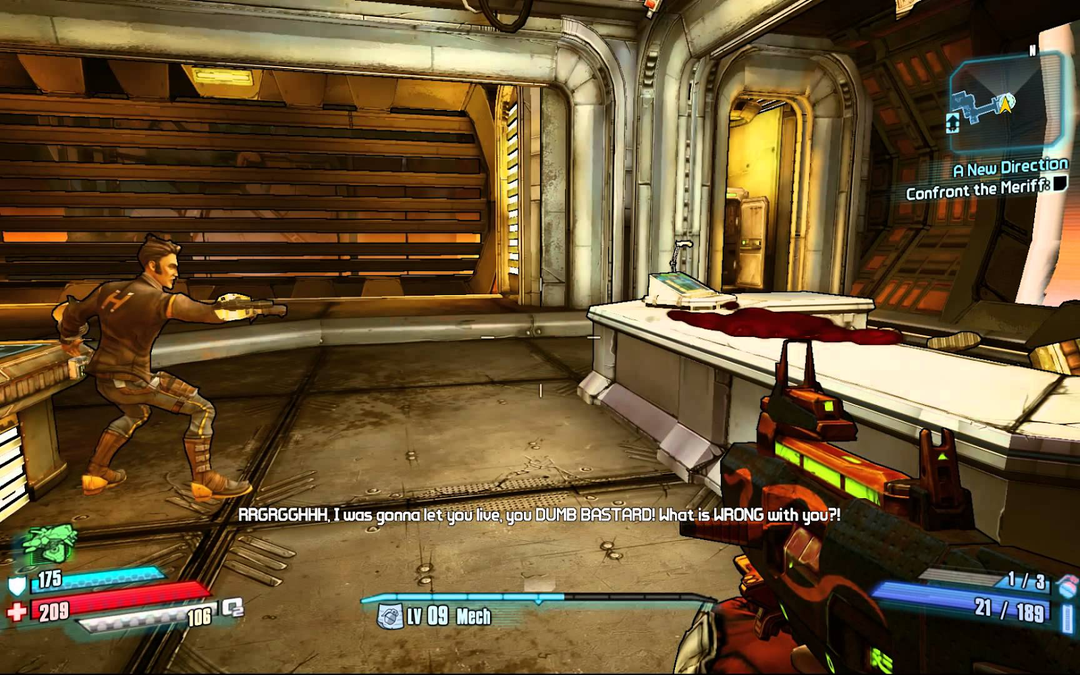
All it takes is one bad day.
The key part to note here is that Jack calls the experience "exhilarating;" though he wasn’t planning to do it, he enjoys killing this man. Troublesome? Maybe, but let’s remember what world we’re in here. Killing people and enjoying it is the bread and butter of Borderlands. As the various vault dwellers in the first two games, it becomes obvious that it's a kill or be killed attitude, and more than just a few characters enjoy the chaos. In the end, regardless of whether or not he thought it was fun, I don’t think anybody would argue that this killing was unjustified. However, it does set the stage for what's to come.
Reprogramming Felicity - A Troubling Compromise
A major story arc in the Pre-Sequel centers around the military AI Felicity, whom Jack wants to use to control his theoretical army of badass robots. You find and rescue Felicity from a former programmer who got trapped on Elpis and went insane. He was forcing Felicity to act as his consort, and she was only too happy to get out of there.
She was less pleased when she found that Jack wanted to put her into a combat robot that could create other combat robots. She first tries to reason with him, then begs him not to. Meanwhile, Jack is reprogramming her, tearing away her personality piece by piece. Finally, what little is left of her turns on Jack and the Vault Hunters and tries to kill them. By the time you defeat her, all that's left is a coldly efficient operating system. Honestly, it's a bit horrifying to play through.
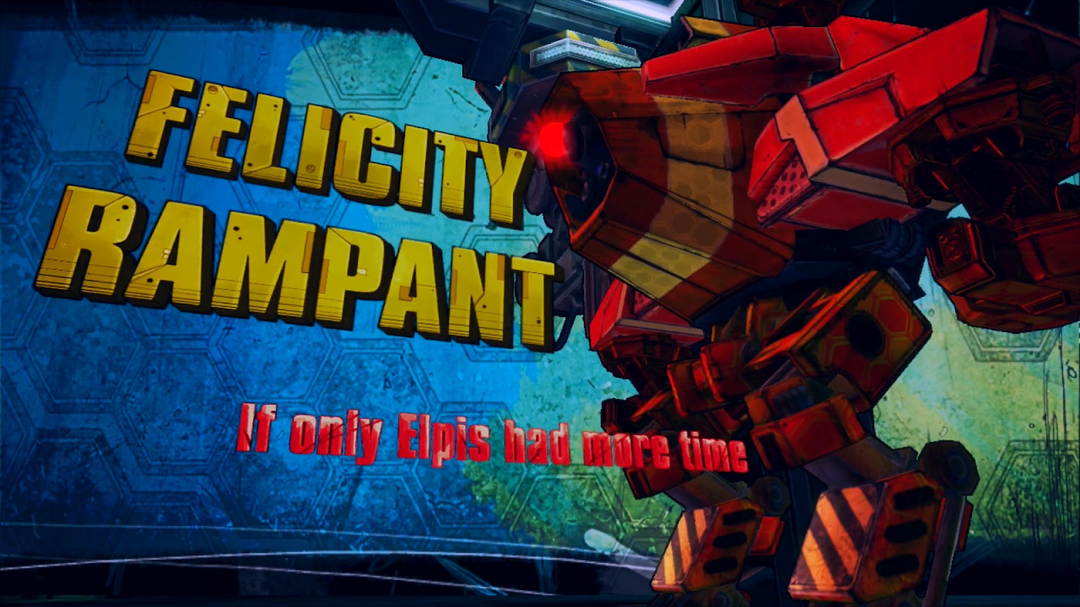
Here’s the damning problem: Jack didn’t have a choice. Or, at least, he was able to rationalize that he didn't. By this point Zarpedon had been attacking Elpis for quite some time, and there was no telling how much longer the moon would have held together. Felicity’s suggestion that Jack make a copy of her programming to use instead of her could have taken a couple of days, which was time they didn't have. Maybe. If we gloss over the debate about artificial intelligence and skip right to saying that, yes, an AI is as important as a human, Jack is still weighing one “life” against however many are on Elpis. He's making a rational choice here...the same rational choice that the villian Zarpedon has made.
Killing The Scientists: Where Fear Leads To Hate
Here is the one indefensible thing, I think, that Jack does in the Pre-Sequel. One of the main story missions has the Vault Hunters trek through Helios to rescue three scientists who each got trapped in their research stations. You rescue the scientists and bring them back to Jack’s office, and that’s when things get weird.
Gladstone, a Hyperion technician who has been helping you for a little while, suggests that Zarpedon might have another mole working for her besides the Meriff (one theory out of several). Upon hearing this, Jack immediately takes action.
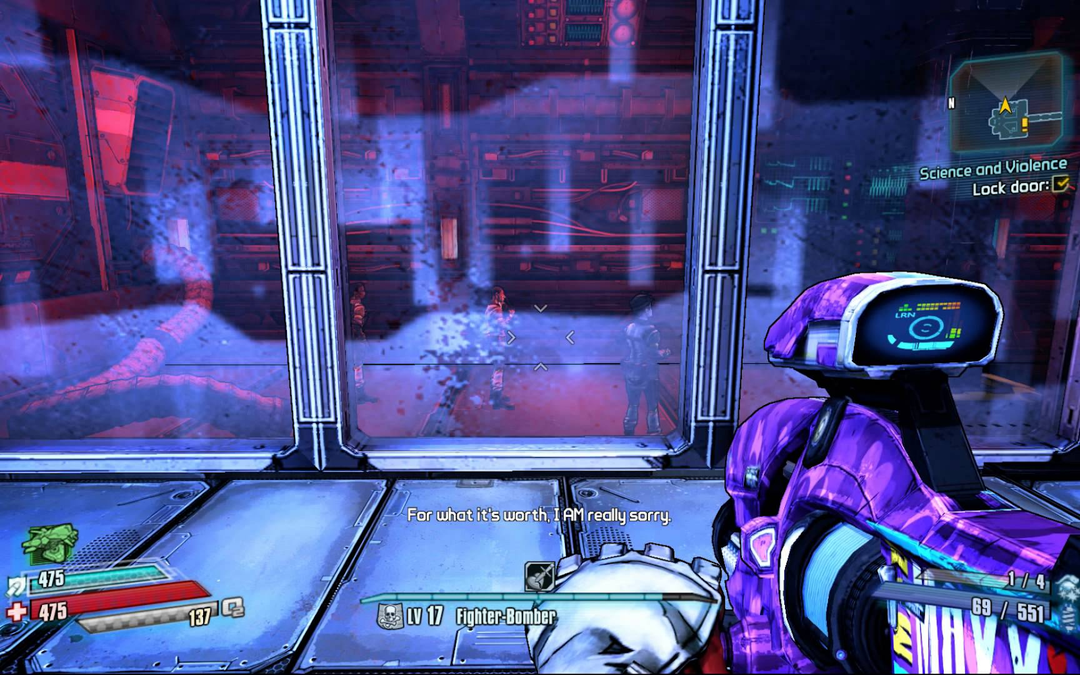
At this point Jack is starting to see enemies in every shadow, and hearing that there might be a second mole leads him to act hastily and brutally. He tricks the three scientists and Gladstone into an airlock, then jettisons them all into space. There was no way to know whether there even was another traitor, and certainly no reason to suspect these four, but Jack leaves nothing to chance and kills them with hardly a second thought. From an outsider’s perspective you can see how he reached the conclusion that he did; there's the same "I had no choice" logic that was behind the previous steps down this road, but by no stretch of the imagination can I say it was the right thing to do. It was rash, quick judgement, and it cost four almost certainly innocent lives.
This is the point where Jack has started to think of himself of judge, jury, and executioner. He has power over the lives of others: why not use it?
The Eye of Helios And A Cold Calculation
The Eye of Helios is supposed to be the proof that Jack is, at heart, a bad person with terrifying ambitions. The Eye is an enormous laser weapon at the heart of the space station that Jack plans to use to wipe out bandit camps from space, killing dozens of people at a time. He talks excitedly about how he’ll be able to cleanse Pandora without losing a single soldier. Most of the Vault Hunters are horrified, and it’s right around now that Jack is betrayed yet again, this time by his ex-girlfriend Moxxi. She tricks Jack and the Vault Hunters into overloading the Eye, which she hopes will destroy it and kill them in the blast.
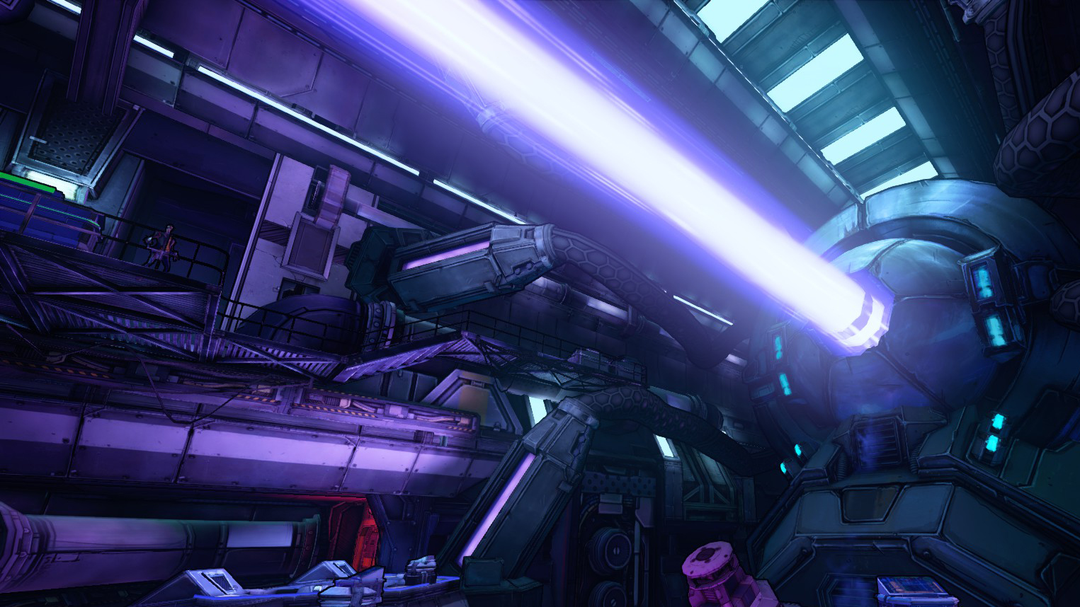
But, really, Jack isn’t wrong here. It's the equivilant of drone strikes in today's world, just on a much larger scale. More to the point, the world of Borderlands is much more violent than our own, and so in some ways, Jack is more justified; bandits are a huge problem on Pandora and Elpis. They raid and attack the few settlements that exist, and try to kill anyone who wanders into their territory. Many of them are completely insane, some to the point that they can’t even form full sentences anymore. All of them take pleasure in pillaging, plundering, and killing. Maybe these guys think they’re heroes too; more likely they just don’t care. Making sure that they survive and everyone else doesn’t is all that matters to them.
Think about how Borderlands 1 + 2 both start: with small, tiny communities under attack by rampaging hordes of outlaws. Jack has a way to kill the bandits with no risk to anyone else, and the Vault Hunters who are so shocked to learn about it are the same ones who happily walk into camp after camp and personally slaughter everyone there. It’s certainly a nuclear option, so to speak, and there is an argument to be made that nobody should have that much power at his fingertips. Still, it’s a pretty shaky reason to decide that Jack is evil and needs to die.
Inside the Vault, and Out Of His Mind
This is the very end of the game, and it's where Jack finally snaps. After everything: The Lost Legion’s attack, the endless setbacks and fighting, the betrayals, and losing his life’s work when the Eye of Helios was destroyed, the Hunters and Jack actually manage to reach the Vault on Elpis. Jack reaches out and takes the alien artifact that's in there in his hand. It starts filling his mind with knowledge of the Vaults (of which it turns out there are many), where they are, and what’s inside.
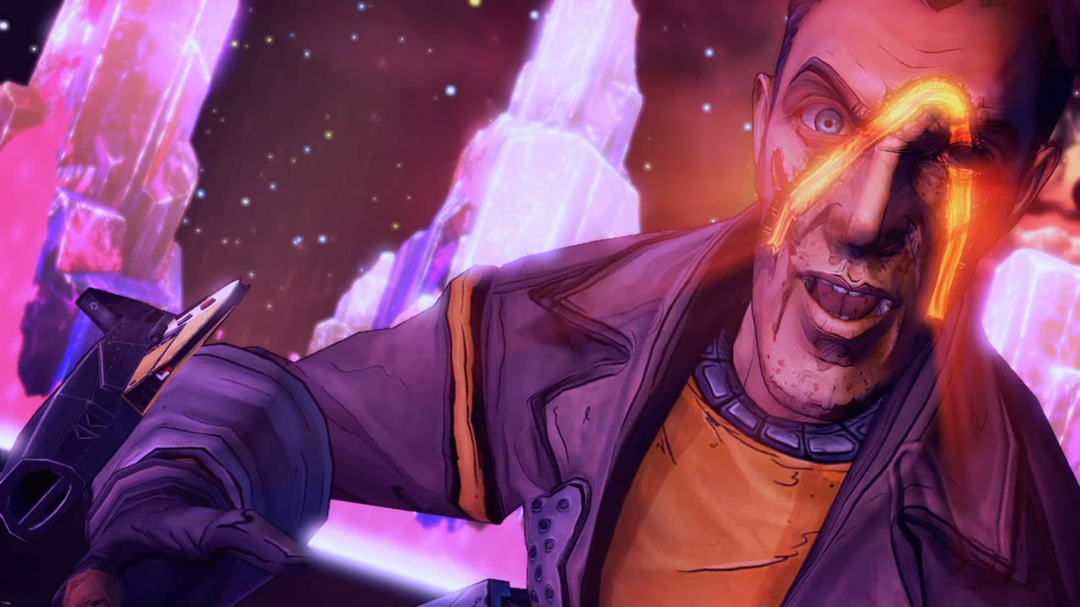
Then Lilith - the Lilith who is the hero of Borderlands 1 and 2 - attacks. In one last betrayal, a former Vault Hunter who has been helping you for nearly the whole game appears in the Vault, shatters the artifact, and maims Jack’s face, all in one fiery punch. That, and possibly the effects of having an artifact shatter while it’s linked to his mind, is enough to finally send Jack over the edge. He laughs gleefully about how they’re going to open a Vault on Pandora, wake up the monster inside, and use it to kill every last bandit on the planet along with everyone who ever crossed him.
Soon after that is the first time we see Jack fully transformed. After the credits there is a brief cutscene that shows Jack murdering Harold Tassiter, the current CEO of Hyperion Corporation. Tassiter’s secretary calls in a panic to ask what’s wrong. While she’s listening, Jack snaps Tassiter’s neck, stands up to reveal a new face pinned over the ruins of his old one, and introduces himself as Handsome Jack. As Athena says elsewhere, she watched a hero die in the vault.

Hero, Villian, Or Accidental Monster?
There’s little doubt that Handsome Jack is evil. There’s some small room for sympathy when you see how he was driven insane by betrayal after betrayal, but a man who happily oppresses an entire world and kills everyone in his way is pretty solidly evil. Handsome Jack, the CEO of Hyperion Corporation and main villain of Borderlands 2, is a bad guy.
However, the series itself draws a sharp line between Jack and Handsome Jack. So what about Jack, the corporate employee who just wants to find a Vault and advance his career? He’s egotistical, but not evil. He has selfish goals, but doesn’t hurt others to pursue them. He thinks it’s fun and exciting to be in a firefight, but - except for the scientists scenario, where he suspected a traitor - he doesn’t kill anyone who hasn’t attacked him first. What do we think of Jack?
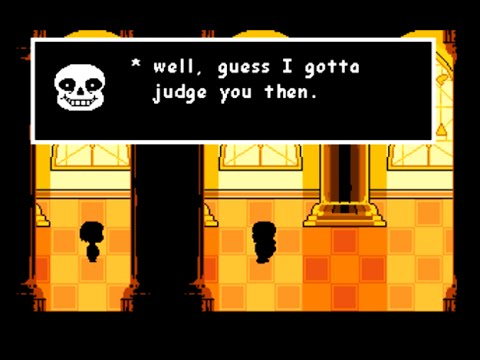
Those scientists are the one reason I hesitate to say with certainty that this version of Jack is a good guy, and the hero of his story. Did he just make a bad decision in a moment of immense stress, or is he really a bad person? It’s certainly a glimpse of the monster he becomes, but could he have recovered from that point, before he was betrayed by Moxxi and the others?
Many other lines point to him trying to be a genuinely good guy right up until he gets a new face, a new name, and in many ways a new character. The makings of Handsome Jack were buried somewhere in him, but they might have stayed buried forever if not for the events of the Pre-Sequel. Could this all have been avoided, perhaps by the Meriff showing restraint, or with characters like Moxxi or Lilith choosing to pause and say "hold on, let's talk about this?" Probably.
Pride Comes Before The Fall
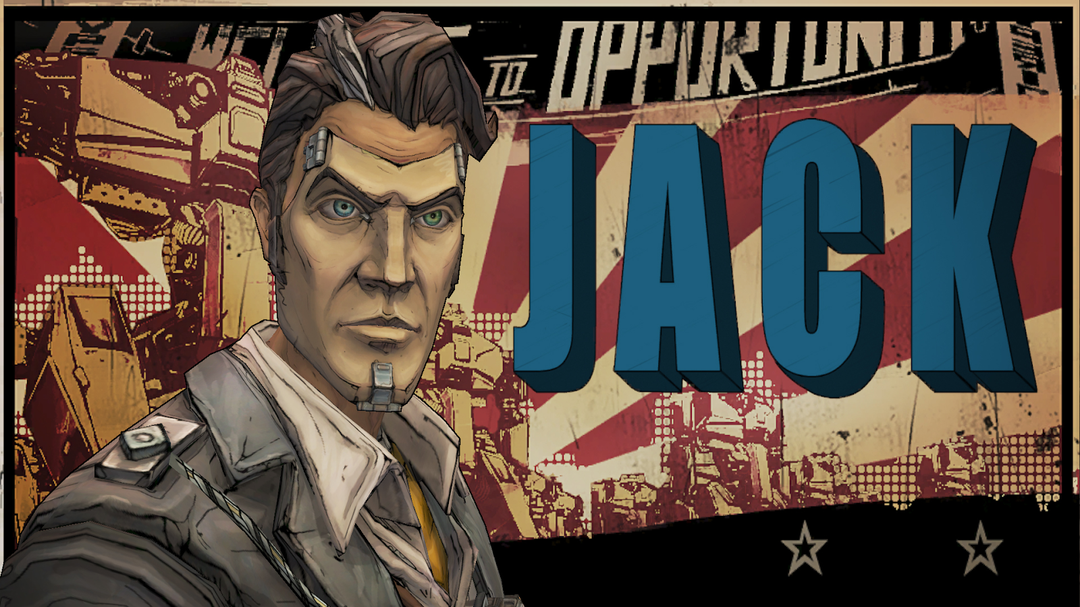
To help illustrate my point, I’m going to put this on the Dungeons and Dragons alignment spectrum. I do this because, in Dungeons and Dragons, Good and Evil are distinct things that can be clearly defined and measured.
Jack starts out Good, and tries his best to live up to that alignment. When he kills the scientists it kicks off a long, ongoing argument with the DM about whether he should shift to Neutral. It ends up not mattering, because at the very end Jack majorly fails a Will save and turns full-fledged Evil - and probably becomes an NPC. He takes the name Handsome Jack to commemorate his new outlook, and the rest is history. He feels like a solid entry into the class of video game characters that wanted to do the right thing, but due to hubris and bull-headed singlemindedness, let themselves be twisted: I'm looking at you, Arthas of Warcraft III.
Yes, Handsome Jack is evil, but part of the reason why he is such a successful villian is because he did, at some point, have a purpose behind his actions. He hates bandits, and he finds others untrustworthy, especially Vault Hunters. It's even easy to understand why he would think that everyone on the surface below is a bandit, that they're all beneath him, both literally and metaphoirically. With the history we're shown in the Pre-Sequel, can you blame him? In the world of Borderlands, where you, as the hero, shoot absolutely everyone that disagrees with you, are you really any better than he is? Maybe in the end, you and your fellow Vault Hunters just hate him because he's more efficient at what you're trying to do.
What are your thoughts on the man that people love to hate? Leave us a comment! Follow us on Facebook or Twitter to keep up with all of our articles and streaming!